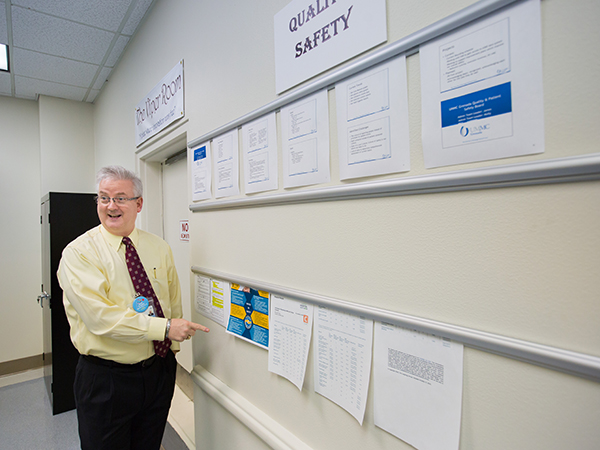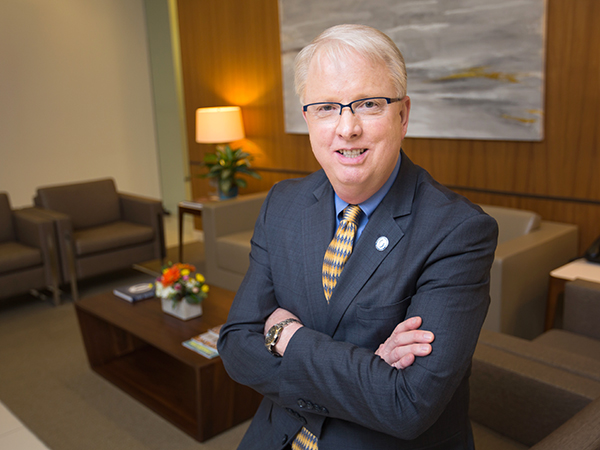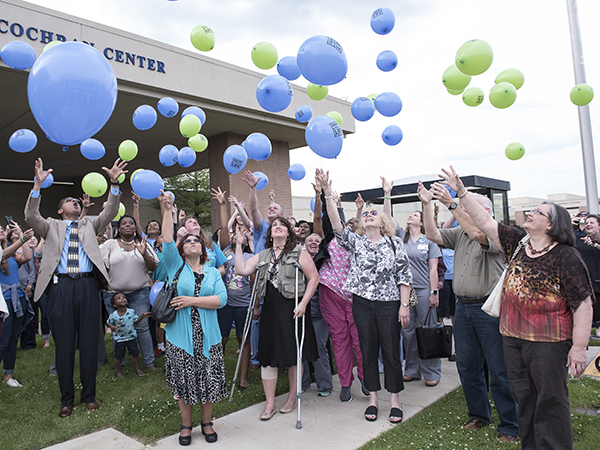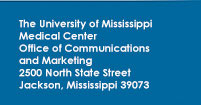|
Dr. Paul Veregge has always been enthralled by science and technology. As a youth, the University of Mississippi Medical Center's new chief information officer/chief medical information officer was a self-professed “model rocket nut” and an avid reader of popular science magazines. After graduating from high school, he joined the U.S. Navy and served as an instructor in submarine nuclear power plant operations, safety and emergency response at the National Reactor Testing Station near Arco, Idaho. He pursued a degree in mechanical engineering, but found medicine fit his personality better: “Medicine requires you to use both right-brain and left-brain skills,” he said. He earned his M.D. with honors at the University of Wisconsin Medical School and had a surgical internship, an orthopaedic research fellowship and a family medicine residency at the University Hospitals of Cleveland, Case Western Reserve University School of Medicine, Ohio. While serving as an emergency physician at St. Luke's Medical Center in Cleveland, Veregge scratched his technological “itch” by founding two businesses: LifeART Studios, a medical illustration company, and TechPool Software. “I wanted to write a book on fracture classifications, and I needed a number of medical illustrations,” Veregge said. “I found that a single medical illustration was quite expensive. So I got the idea to use technology. “I got a three-dimensional digitizer tool, digitized the bones of the body and started a medical illustration and animation company.” His software company was similarly inspired. “For a project I was working on, I needed to make a postscript file editable. I was trying to make the tool Acrobat before Adobe was even on the scene. “I was working in the computer graphics, entertainment and medical illustration industries at the same time I was in the medical field.” Upon returning to Wisconsin as a family physician for Affinity Health System and Network Health of Appleton, Veregge was asked to implement an EHR tool for the network. “That got me into health care informatics,” he said, and he has been involved in that specialized field ever since. As the Medical Center's CIO and CMIO, Veregge is uniquely positioned to enhance the patient experience at UMMC while improving caregiver interaction with electronic health records (EHR), according to Dr. LouAnn Woodward, UMMC vice chancellor for health affairs. “Paul's experience as a health care provider brings a perspective to this role that we haven't had before, and I think it's already having a positive impact,” Woodward said. “In addition, he's demonstrated that he's a team player who's able to contribute good ideas that are beyond his immediate area of responsibility.” It's not the first time Veregge has worn both hats for a major academic medical center. He served as CIO and CMIO for Baptist Health System of Texas for several years and has led the development, implementation and maintenance of information technology infrastructure, electronic health records, business systems, clinical engineering, telecommunications and Help Desk services for physicians and clinicians in Texas, Arkansas, Iowa, Kentucky and Colorado. He comes to UMMC from Catholic Health Initiatives of Denver, where he served as divisional chief medical informatics officer. He said the Medical Center offers “an opportunity for me to give back to helping educate more clinicians in a lot of specialties - from the School of Medicine to nursing, health related professions and dentistry - and also make the clinical experience for caregivers better.” That, in a nutshell, is the value of having a physician take the lead in information technology at an academic medical center. “I think about the CIO role as the infrastructure piece - working behind the scenes to maintain applications and keep the software running,” Veregge explained. “The CMIO is responsible for the interface between the technology tools and the clinical team - making sure the tools are available to help them maximize their practice of medicine. “In separate roles, the CIO and the CMIO may have disagreements about what their priorities are. As a physician, I'm obviously more consumed with patient care, the patient experience and quality of care.” He comes to the Medical Center during a critical time for enhanced medical technology: within the next 12 months, the new School of Medicine building and Translational Research Center will be completed, and ground is expected to be broken on a new Batson Children's Hospital wing. Each presents its own challenges for Veregge's information systems team. “It's a challenging environment with certain rules and regulations to operate as a health care organization in general at the speed we need to operate,” he said. “We have had people working nights and weekends to make sure we are on time and on budget in these new buildings. “We will be up to date with straightforward technology.” Apart from the new construction, Veregge is looking to improve the customer service aspect of information systems for clinical caregivers. “I'm invested in making changes and being transformable,” he said. “We had pretty good customer service when I arrived, but I want to be even better.” To that end, he plans to establish a Clinical Help Desk to better serve caregivers throughout the state who may be experiencing EHR issues. UMMC will begin supporting the Mississippi State Department of Health by rolling out a program to provide its EHR services to the department's approximately 80 clinics throughout Mississippi under a program called Epic Community Connect. “If caregivers are having issues, we want them to call someone on our team,” Veregge said. “Clinicians need access right away. Medicine is constantly running; it doesn't stop. “When you've got to call for technical support and you're having to wait for someone to get back to you while a patient is sitting right in front of you or lying in bed in front of you, that's not good customer support.” Veregge also plans to increase the number of health informaticists on staff. “We need a team of health informaticists who are helping the frontline team establish their workflows, navigate EHR and provide other assistance to help meet their needs,” he said. “In the long term, I'd like for UMMC to be recognized among its peer academic medical centers for our ability to provide services and technology to caregivers and for providing an outstanding patient experience.” Veregge summarizes his dual responsibilities at UMMC with a single aim: to make everyone's lives easier with technology. “For the majority of end-users - our clinical teams - it's about providing better optimization of systems to be effective for their needs,” he said. “Similarly, on the business side, it's making sure we keep the applications up and running and up to date with appropriate technology standards. “We've got a lot of hard work to do, but we have the systems and the people in place to accomplish our goals.”
|
























